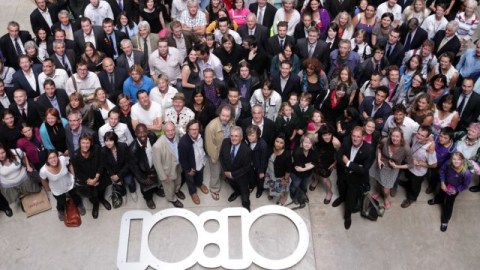The 10:10 Climate Video: Why It’s Important to Step Outside Your Echo Chamber

It’s difficult to figure out which was worse, the original “No Pressure” video released by the UK climate campaign 10:10 that depicted kids being blown up for not acting on the issue or how the organizers of the campaign initially handled criticism. “”We ‘killed’ five people to make No Pressure – a mere blip compared to the 300,000 real people who now die each year from climate change” said organizer Fannie Armstrong citing a strongly contested estimate.
Or as Armstrong also remarked: “At 10:10 we’re all about trying new and creative ways of getting people to take action on climate change. Unfortunately, in this instance we missed the mark. Oh well, we live and learn. Onwards and upwards.”
But Armstrong seems to miss the point. With months to plan a video to launch their initiative, 10:10 organizers had the time and the resources to think carefully about their message appeal and presentation. Who was their intended audience? How will the news media define their message strategy? What principles from research can inform the video’s narrative? Once produced, how do targeted audiences react?
Instead they handed responsibility for the video to comedic film writer Mike Curtis who followed his creative intuition and produced a spot that he found funny and that others at 10:10 apparently also thought was hilarious. 10:10 didn’t even show the end result to corporate or environmental partners on the campaign. If you haven’t seen it already, you can take a look at the spot below.
While it might have been difficult for 10:10 to predict the tsunami of negative reaction, as U.S. environmental leader Bill McKibbon wrote, the effect should have been apparent: “Climate skeptics are going to make a big deal of this. The video represents the kind of stupidity that really hurts our side, reinforcing in people’s minds a series of preconceived notions, not the least of which is that we’re out-of-control elitists.”
In a round up of expert reactions at Andrew Revkin’s Dot Earth, here’s how my colleague Ed Maibach, an expert on social marketing campaigns, emphasized the need to think through theoretical principles and diverse audiences when preparing a video campaign:
I’ll admit that I find it funny, but then again, I’m a sucker for British humor. Regardless, I think they used bad judgment in producing it (unless it was completely pro bono) and in posting it. Even if all of their intended audience members and other important stakeholders found it to be funny (which, apparently, they didn’t), what was the point of the spot? That nearly everyone is participating in 10:10 (i.e., saving energy is a new social norm)? Surely there are better ways to make that worthy point.
As McKibben predicted, consider the clip from Fox News below. The anchor introduces the story by warning viewers that what they are about to see is “extremely graphic,” and will be “disturbing to some of you.” Then Fox News turns interpretation over to uber-climate critic Marc Morano who argues that the film is evidence that “extremists” and ” global warming fear mongers” are trying to use “eco-snuff” films to scare us into climate action.





